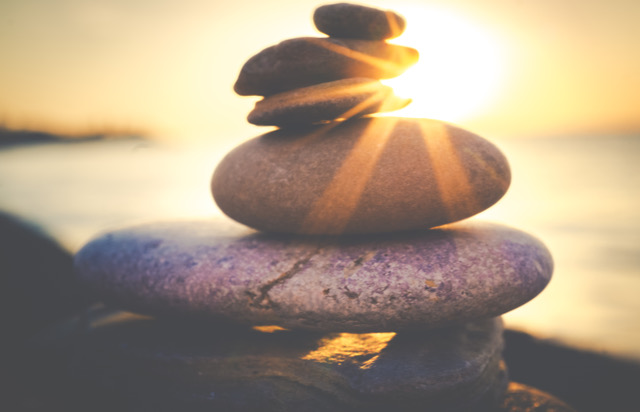1. One of the most effective methods used is deep breathing. The following exercise will physically and mentally calm you:
Hold your breath for a slow 3 count. And then exhale for a slow 3 count. You can do this as long as you want. It really helps.
2. The next thing you can do is something called stop and replace. The purpose of this is to stop the anxious thought and replace it with a more calming thought. EX: I am anxious about going in front of the class to present my project. (so I keep thinking about it and it just makes me more anxious). STOP!! that thought and replace it with a thought such as thinking of something exciting you are going to do this weekend like go on a family trip, and just really lose yourself in the thought and take your mind away from the current anxious thought.
3. If possible, have someone you know/trust talk to you and comfort you. Ask him/her to massage your palm while talking to you.
4. Tense the various muscles in your body for a few seconds and then release, allowing yourself to relax.
5. If you are able to stand, get up and walk around slowly, while “slowly” deep breathing (change of focus).
6. Do not lock your jaws together; this will make the nausea in your panic attack twice as bad. People are often tempted to do this, but it does not make it any better. Relaxing your face will help.
7. If at all possible, physically do something like cleaning up. Your body has produced a lot of adrenaline, it’s keyed for “fight or flight.” Sitting or standing still causes toxins to build up in your muscles for later cramps and aches, while it also increases anxiety because you’re forcing yourself to stand still. Cleaning or organizing something also gives a sense of control – you were able to control something. It also stimulates your left brain (logical side) so you can approach the situation rapidly. The more vigorous and organizational the activity, the better. Unless it’s immediately before a performance or something, this is a good time to organize your closet or sort everything on your workbench. This is especially good for killing time before a stressful emotional event like proposing to your significant other or facing an exam when it’s scheduled later. 8.
8. As a panic attack often fuels itself by unintentionally focusing on the cause of panic, it can help to divert your attention by focusing on something else, such as doing mental puzzles: word games, numerical problems or noting the features of different objects within sight. Try counting backwards from 100 by 3’s, or saying the alphabet backwards, etc. It’s even better if you can fully avoid focusing, do not focus on not focusing. (practicing meditation helps learning how to do this).
